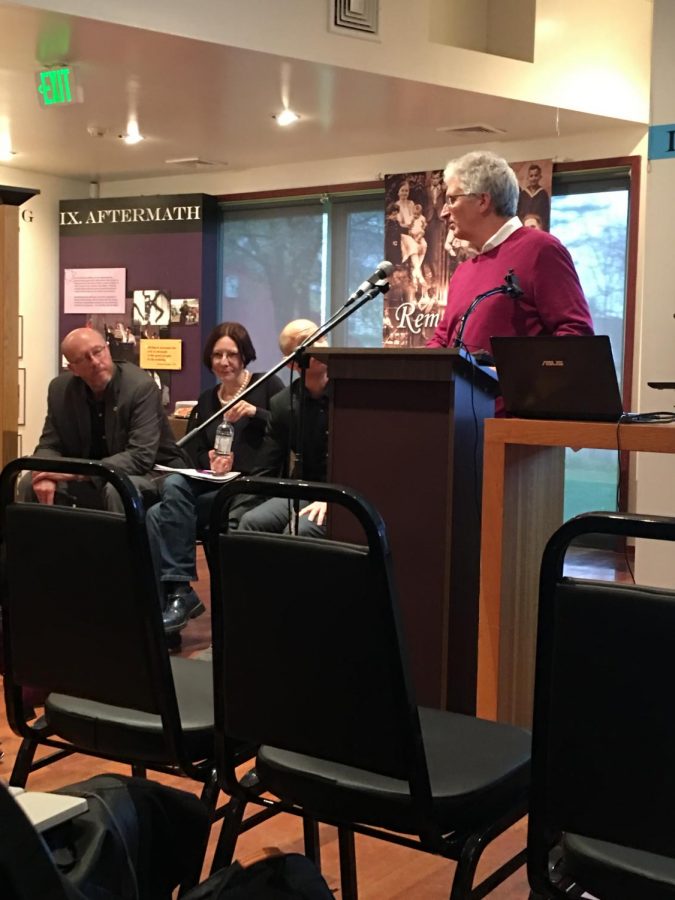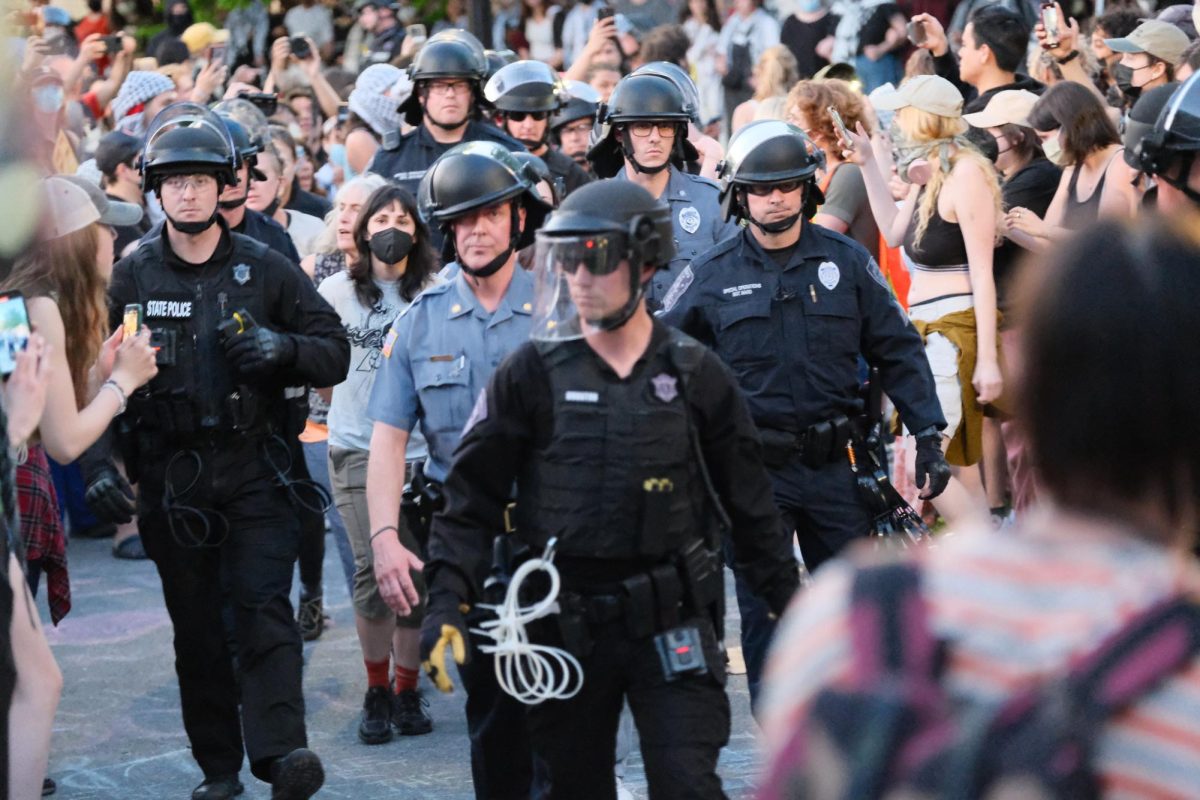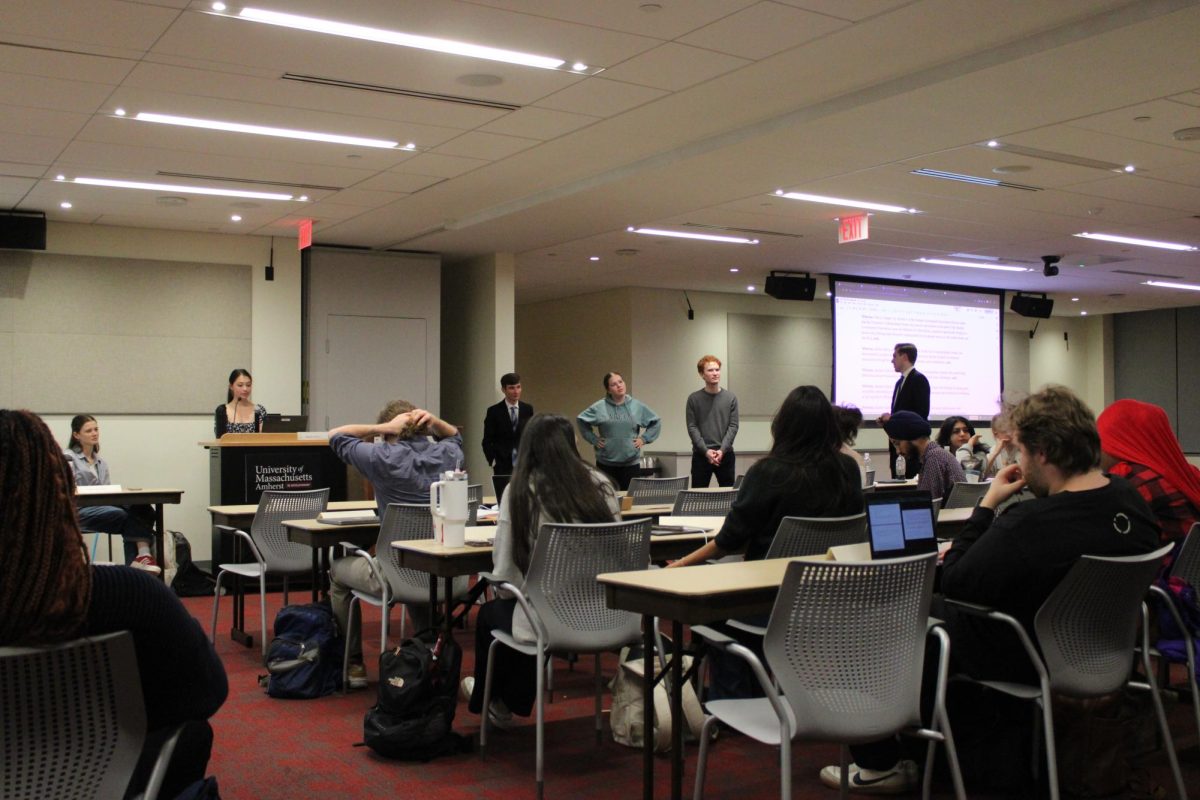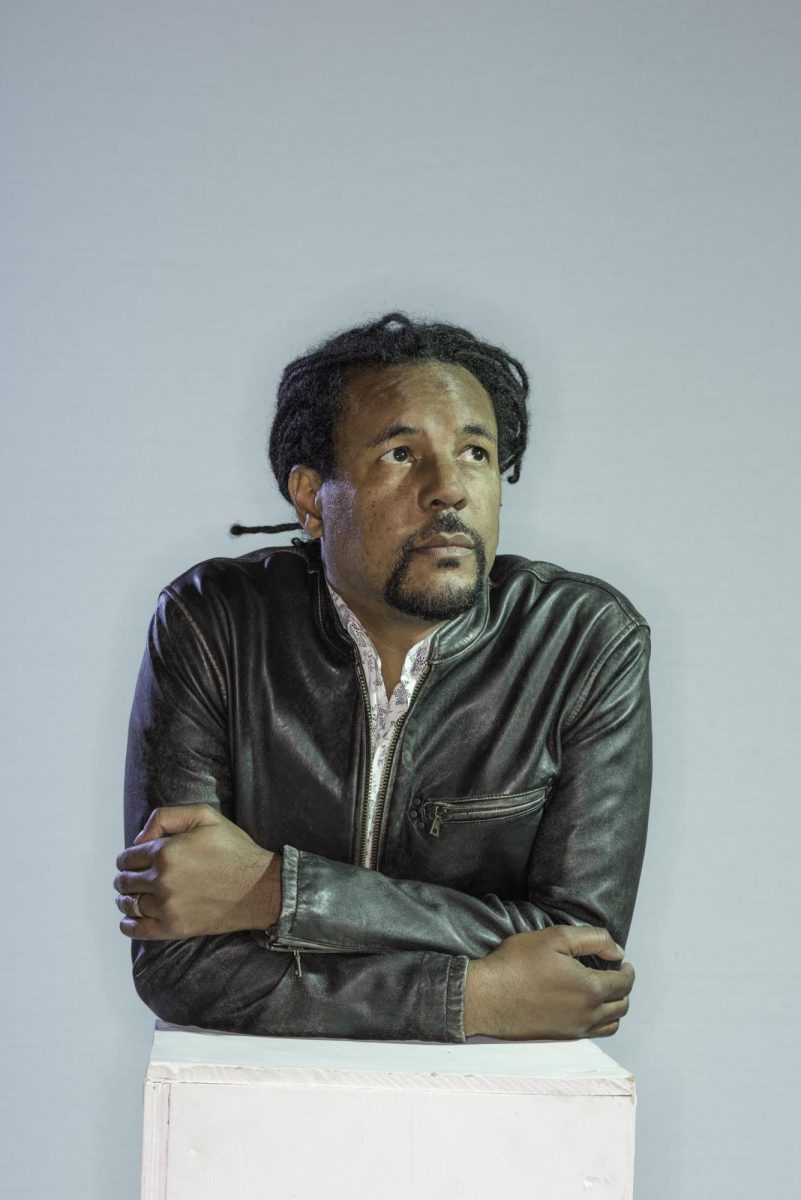On April 27 in the Institute for Holocaust, Genocide and Memory Studies at the University of Massachusetts a lecture was held titled “Holocaust Memory in Contemporary Poland and Israel: The Challenge from Right–Wing Regimes,” which featured three guest speakers, all with expertise in the subject matter at hand.
Alon Confino, the director of the IHGMS and the event’s moderator, began the lecture before introducing each speaker and their individual presentations. Confino said, “Of course there’s always been debate on how we commemorate [the Holocaust], but we see a certain shift in the last few years in which debates that you couldn’t have imagined a few years ago are now a part of the discourse as well as certain misuse of the Holocaust or use of the Holocaust for political means.”
Jan Grabowski, a professor of “History of the Holocaust” at the University of Ottawa, founding member of the Polish Center for Holocaust Research in the Polish Academy of Sciences and author and editor of dozens of multi-language books and articles, was first to speak.
Grabowski, who recently returned from a trip to Warsaw, explained the main reason for the current discussion.
“On January 25, 2018, so three months ago, [two days before] International Day of the Victims of the Holocaust, the timing could not have been worse, the Polish parliament…passed a bill which would make it illegal to use the expression ‘Polish [death] camp’ and more importantly, however, the same bill called for prison terms of up to three years for, I quote, ‘Falsely attributing the crimes of Nazi Germany to Poland and the Polish society,’” he said.
The bill, signed into law by Polish President Andrzej Duda of the ruling right-wing Law and Justice Party, is dangerous in Grabowski’s view.
“The real issue was a clear attempt by the Polish lawmakers to stifle the debate about the history of the Holocaust. International condemnation followed: Israel, the United States, France and my adopted motherland of Canada expressed their deep concern with the wording of the law which would impede the ardent independent research into the painful issues of complicity of the Polish society and the destruction of Polish Jewry during the Holocaust,” Grabowski said.
Grabowski went on to say, “Unfortunately, anti-Semitism has always been an important component of the Polish culture and arguably one of its constitutive elements. The anti-Semitic feelings in Poland were strong before the war, they became stronger during the war and they continued to be significant after the war even when the Jewish community in Poland ceased to exist.”
He explained that despite this ever-present and lingering anti-Semitism, with the exception of a campaign under the then-communist rule to exile Poland’s remaining minority Jewish population in March of 1968, anti-Jewish sentiment remained largely hidden after World War II. That is until the fall of communism in 1990, which, according to Grabowski, “brought about democracy and ushered in an era of the open society. It also brought back the demons of the past.”
Grabowski then cited a key incident in the early 2000s, the publication of author Jan Gross’s historical novel “Neighbors: The Destruction of the Jewish Community in Jedwabne, Poland.” The book takes place in the Polish village of Jedwabne in 1941 and was described by Grabowski as “a shattering account of Polish townsfolk cruelly murdering their Jewish neighbors.” He added, “In Poland, the book triggered an enormous debate and a lot of soul searching.”
“Polish authorities started to build up, reinforce and expand the myth of righteous Poles who saved the Jews. The goal was, of course it still is, to present these rare and extremely courageous individuals as a wartime norm, as the default position, the default attitude of Poles during the war. This is a historical fallacy,” Grabowski said.
The second speaker was Elżbieta Janicka, who attended Paris Diderot University and is a historian of literature at the Institute of Slavic Studies at the Polish Academy of Sciences.
Janicka’s presentation differed slightly from that of her colleague Grabowski, but referenced similar themes.
She introduced her presentation by saying, “Rather than a matter of political orientation [the current state of affairs is] the result of and a symptom of the dominant culture. The current states of affairs cannot be understood without considering two specific contexts: the historical reality of the Holocaust in Poland and Polish memory culture.”
Janicka went on to say, “anti-Semitic violence was not anomic violence, this was a matter of socio-cultural legitimacy,” and that Jews in Poland “continue to be a constitutive enemy, a building block of the Polish collective identity: first religious, afterward national.”
Janicka later spoke about how the years of abuse under communism have come to shape contemporary Poland, leading to the disappearance of left-wing orientations from the Polish parliament.
“National cohesion has replaced a compromised social cohesion. All social and economic postulates must be legitimized by patriotic argumentation, otherwise such postulates risk being categorized as ‘Stalin’s orphan children.’ In the dominant discourse nothing is worse than communism, even Nazis. Anti-communism gives more meaning to anything that claims to be anti-communist, including murder,” she said.
“What we are confronted with in today’s Poland has to be dubbed a ‘hybrid,’ an authoritarian regime, if not a one-man dictatorship, with a nominally democratic façade, as is the case with Hungary,” Janicka said, adding, “Functionaries of the anti-liberal-democratic regime promised to construct a machine of narrative security: new holidays, new calendar of historical anniversaries, a new tale of national heroes, [changes to] public education, illegal measures.”
The last speaker was Raz Segal, a professor of Holocaust Studies at Stockton University where he also serves as director of the Master of Arts in Holocaust and Genocide Studies.
Segal’s presentation, titled “Self-Devouring Memory: The Holocaust in Israeli Society and Politics” took a different approach from his two colleagues, focusing on Holocaust narratives in Europe and to a greater extent in Israel.
Segal, who views the Holocaust as a cornerstone of history in Western society, said, “The role of European states in the history of the Holocaust became significantly marginalized save for those small groups or parties considered as Nazi sympathizers or collaborators who conveniently serve, if needed, as alibis of the nation: ‘They were Nazis, all the rest were rescuers or resistance.’ It changes from place to place,” he said.
“Holocaust memory, in other words, normalized state violence in the 20th century by representing what seems in the eyes of many to be of normal violence. Crazy and irrational Nazis murdered Jews just because they were Jews, whereas state authorities engaged in mass violence for a purpose which is rational and desirable in the international system…and eliminate the ‘problematic’ minorities that are often also viewed as dangerous to security,” added Segal.
Segal said he sees mirroring in the nation-state building of Europe within Israel’s creation following WWII, indicating, “it’s therefore not the least surprising that this new nation-state turned almost instantly to exclusion and violence against those in the way of ethno-national homogeneity, Palestinians.”
Chris McLaughlin can be reached at [email protected].




















